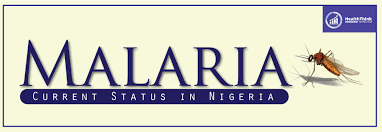Malaria is the most prevalent health challenge facing Nigerians by a significant proportion of 81 percent, a survey by NOIPolls has revealed.
The NOIPolls, which is Nigeria’s leading survey and polling firm, said in the report released on Wednesday in Abuja ahead of the commemoration of the World Malaria Day on April 25th each year that its recent findings (2017) also showed that as many as 69 percent of the population had been diagnosed with malaria at least once (or more) in the past 12 months; with 63 percent accessing malaria tablets, 30 percent taking injections, and 6 percent making use of native medicine to treat the ailment.
Nigeria, according to the report, bears the burden of debilitating diseases like malaria, polio, HIV/AIDS, typhoid, etc.
For instance, Nigeria suffers the world’s greatest malaria burden with approximately 51 million cases and over 200,000 deaths reported annually.
With about a third of the population getting ill from malaria only in the span of 12 months, the negative impact this has on productivity and development cannot be taken for granted.
The report noted that on average, 93 percent of malaria episodes are treated with modern medicine (63 percent with tablets and 30 percent with injections).
Of the remainder, 6 percent are treated with native treatment while the remaining 1 percent cases are untreated.
The survey revealed an urgent need for interventions in the Nigerian health system to reduce the incidence of malaria as the burden of malaria remains quite high in the population.
“This raises concerns regarding the effectiveness of malaria interventions and suggests the need for more to be done in its prevention; as it is being advocated by the WHO,” the report said.
It noted, however, that the future still holds considerable promise with new dimensions being explored which include increased research funding especially towards vaccine development.
The report believes that malaria control in Nigeria and indeed other endemic countries will cease to be a mirage and become a reality with a little more strategic and prioritized effort.
GIK/APA


